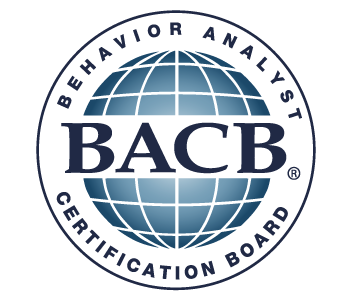Let's shine some light on the most confusing terms
What is Autism Spectrum Disorder?
ASD (Autism Spectrum Disorder) is characterized by varying degrees of difficulty in social interaction and verbal and nonverbal communication, and the presence of repetitive behavior and/or restricted interests. Due to the nature of the disorder, people with ASD will require the appropriate medically necessary treatment in order to achieve the ability to function independently.

What is Applied Behavior Analysis?
- ABA is a well-developed scientific discipline among the helping professions that focuses on the analysis, design, implementation, and evaluation of social and other environmental modifications to produce meaningful changes in human behavior. ABA includes the use of direct observation, measurement, and functional analysis of the relations between environment and behavior. ABA uses changes in environmental events, including antecedent stimuli and consequences, to produce practical and significant changes in behavior. These relevant environmental events are usually identified through a variety of specialized assessment methods. ABA is based on the fact that an individual’s behavior is determined by past and current environmental events in conjunction with organic variables such as their genetic endowment and physiological variables. Thus, when applied to ASD, ABA focuses on treating the problems of the disorder by altering the individual’s social and learning environments. The current guidelines are specific to ABA as a behavioral health treatment of ASD. Nevertheless, ABA has also been demonstrated as effective for treating the symptoms of a variety of conditions, including severe destructive behavior, substance abuse, dementia, pediatric feeding disorders, traumatic brain injury, among others.
This was quoted from the Behavior Analyst Certification Board.

BCBA, RBT, LBS...
What is a Board Certified Behavior Analyst (BCBA)?
A BCBA is a graduate-level or doctorate-level certification in behavior analysis. Professionals who are certified at the BCBA level are independent practitioners who provide behavior-analytic services. In addition, BCBA’s supervise the work of Board Certified Assistant Behavior Analysts, Registered Behavior Technicians, and others who implement behavior-analytic interventions.
What is a Licensed Behavior Specialist (LBS)?
A LBS is a person who carries a master’s degree and has completed a 90 hour course sequence. They’ve done a year under an individual who conducts FBA’s. They’re licensed by the state medical board in the state of Pennsylvania. A BCBA must have an LBS licence in the state of Pennsylvania, however an LBS does not have to be a BCBA. The requirements of a BCBA are more specific in their training, their supervision is more intense and they have to follow the ethical guideline of the BACB. All of our LBS’s are in supervision to become BCBA’s.
What is a Registered Behavior Technician (RBT)?
-A RBT is a paraprofessional who practices under the close, ongoing supervision of a BCBA, BCaBA, or FL-CBA. The RBT is primarily responsible for the direct implementation of behavior-analytic services. The RBT does not design intervention or assessment plans. It is the responsibility of the RBT supervisor to determine which tasks an RBT may perform as a function of his or her training, experience, and competence. The BACB certificate supervising the RBT is responsible for the work performed by the RBT on the cases they are overseeing.
This was quoted from the Behavior Analyst Certification Board.

What is a Direct Therapist/Therapeutic Support Staff (DT/TSS)?
DT/TSS are trained and educated to provide therapy to people with autism or other emotional support needs. It is a position used within the commonwealth of Pennsylvania.
A DT/TSS meets with a child in a one-on-one situation, with family, in public or at school to provide therapy. In areas like social skills, behavioral rehabilitation, speech, motor skills, and many other areas that people with autism or other emotional support needs. TSS workers are often confused with a wrap around which provide many of the same supportive therapies, but a TSS worker has more in depth training and education on working with special needs, where a wraparound works mainly with children that have behavioral issues.
The states requirement for a DT/TSS training is less than for a RBT.

What programs and assessment tools do you use?
Our BCBA’s are trained using multiple programs, including: PEAK, VB, ABLLS, VB MAPP, feeding programs, toilet training, Denver Model, sleep programs. This is not an all inclusive list of the services and assessments we provide to our clients. We believe in a multiple approach to delivering services based on a child’s response to intervention.Our staff get trained in multiple programs and assessments.

Do you have parent policies and treatment guidelines?
The Behavior Analyst Certification Board is committed to promoting and disseminating professional behavior-analytic standards, including parent policies and Treatment Guidelines.
Our company follows these practices.
